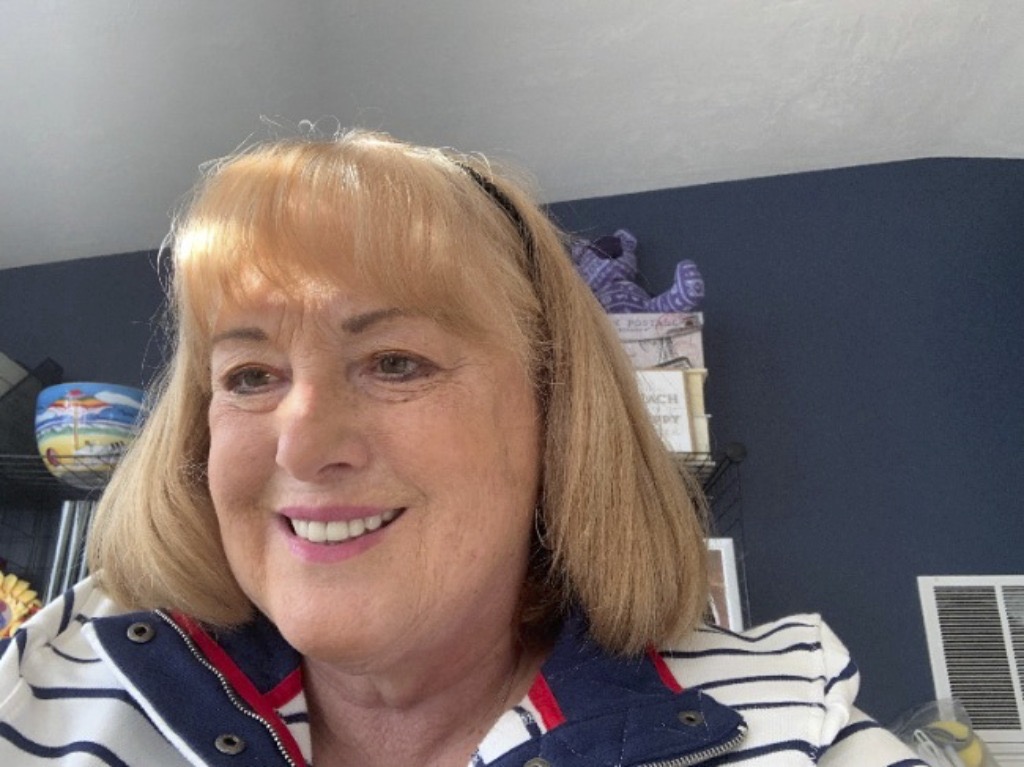
Peer Grief Helper Profile: Jill Laganas
By Kerry J. Bickford, VOICES Editor
Jill Laganas is one of the first volunteers in SADOD’s new Peer Grief Ally Program. Peer Grief Allies are bereaved by a substance-use death and are trained to help newly bereaved people one-on-one. This is a near and dear role to Jill’s heart as someone who believes in the power of peer support and as a mother who has borne the heartbreak of losing 15-year-old Crystal to cancer in 1991 and 38-year-old Billy to an overdose in 2016.
When Crystal died 18 months after her diagnosis, Jill and her husband were left with two confused and grieving sons, ages 11 and 12. The whole family attended grief counseling, and Jill’s optimistic husband kept saying, “It’s gonna be fine,” but it wasn’t. Jill went into withdrawal for about a year and a half, during which she felt like she couldn’t parent, so paralyzed with the trauma of her daughter's ordeal and subsequent death. Even when she was finally able to go back to her job teaching high school math, it was difficult because all Crystal's friends were there, too. She stayed out of the hallways to avoid having to deal with the reminders. She even recalls dropping one of her sons off at school, then watching him leave through her rearview mirror. Everyone was suffering and avoiding -- each in their own way.
Jill recalls that it was inevitably her faith that “snapped me out of it.” She went to church for 40 days straight -- a Greek Orthodox tradition. It is symbolic of the soul wandering for 40 days -- finally finding its way to the afterlife. At the end of this period, Jill felt that “although Crystal is somewhere else, she’s OK.” Together, Jill and her husband, George, established a memorial scholarship to give to someone at church every year in Crystal’s name -- a way to keep her memory alive. Says Jill, “We got through this together.”
Jill’s sons did not do as well and continued to avoid talking about their older sister’s death as they moved through their teenage years. Although they had attempted therapy, the boys began coping in less healthy ways, including smoking pot and getting into more and more trouble. Things went from sad to bad, and Billy ended up serving time in jail. He came home but went right back into prison not long after and served another six-and-a-half years at MCI-Shirley. After his second release, Billy finally spent some quality time with family, including his nine-year-old daughter, at Jill’s beach house in Seabrook, New Hampshire. He loved watching cooking shows, so he cooked for the family and took long walks on the beach with his daughter, holding hands. Jill, who described her son as “kind-hearted,” said she felt hope for the first time in a long time during this visit.
But Billy had a secret he was dealing with, and he didn’t show up for a scheduled lunch and shopping trip with his girlfriend one morning. He wasn’t responding to phone calls, either, so she broke his door down. But it was too late. She found him inside with Jill’s dog standing guard over his lifeless body. Jill later learned that Billy knew he was struggling with addiction again and had tried to get into a program the previous evening -- but there were no beds. He had died sometime after making those phone calls.
Jill was in agony and shock after cautiously allowing herself to feel so hopeful. She found herself, once again, in the depths of despair. As paralyzing as her grief was, this time. Jill developed some rituals to help her survive those dark days that began simply with getting up and getting dressed -- “even if there was nowhere to go.” She kept her prayer books close by and pictures of all of her children and grandchildren in happier times. She talks to them as she looks at their pictures on her bureau each morning and even, sometimes, cries. “I remember them each day,” she says. These are the simple but eloquent ways she grieves her losses and still moves forward in her life.
Learn to Cope has also played an enormous role in her healing, so much so that Jill continued to attend LTC meetings for months after Billy’s death. She eventually decided she needed to do something a little different and participated in a SADOD peer grief support group facilitator training in 2019 to consider the possibility of facilitating a support group. She also began to attend and eventually co-facilitate a brand new group called Still Learning, Still Coping. This Learn to Cope group was specifically designed for people who have lost a loved one to substance use while another is still struggling, as her son Scott does. Jill and George have been raising Scott’s daughter Shyanne, 26, since she was 18 months old, and they are committed to doing what they can for her four other grandchildren (Scott’s three stepchildren and Billy’s daughter).
Jill shared a photo (found here) of colorful rocks she was painting in partnership with the Kindness Rock Project, It strives to help spread hope and inspiration to others. Jill’s faith and commitment to the memory of her children and the role they each play in her service to others who are suffering are reflected in everything she does, including this, and perhaps explains why this excerpt from a Wordsworth poem ... including this, which brings to mind this excerpt ...
Though nothing can bring back the hour
Of splendor in the glass
Of glory in the flower,
We will grieve not, rather find
Strength in what remains behind
